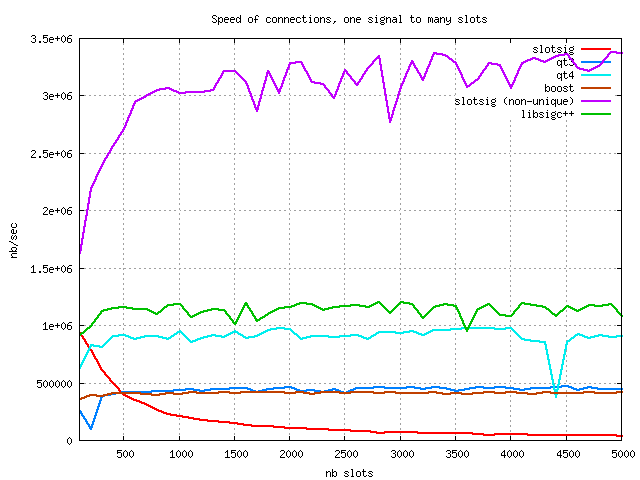
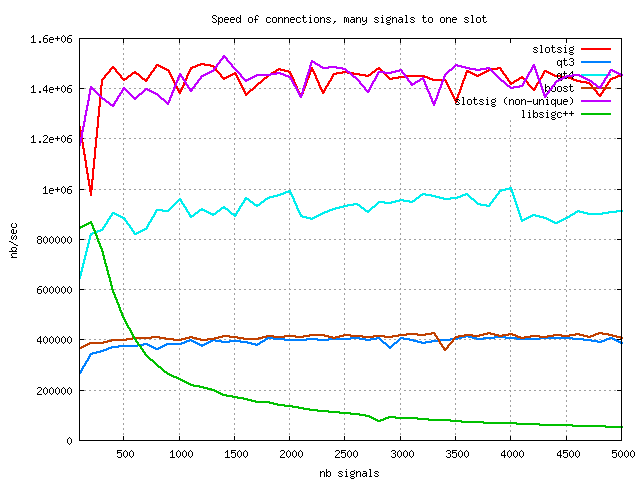
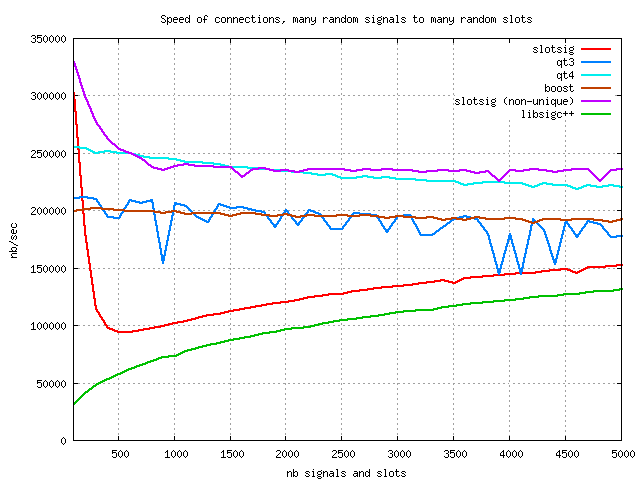
Speed and memory usage may be concerns when using a signal/slots library. They're not really an issue when you have vew signals connected to few slots, but imagine an application creations thousands of signals, each connected to thousands of slots... So I decided to work on speed, and compare SlotSig with some other libraries :
The sigslot library has not been benchmarked, because it provides too less features than the others.
The programs used for the benchmarks can be found in the
benchs directory in SlotSig distribution.. They have been
compiled using g++ 4.0.2 (with -O2
optimisation), and executed on a Kubuntu Linux system, kernel version 2.6.12.
Speaking hardware, the core processor is an Intel Pentium IV 3.2Ghz, system
RAM is 1GB. The tests where performed in a moderatly-loaded system (running
KDE) to have a kind of "real-world" running environment. Pictures were
generated using GnuPlot.
Three kinds of benchmarks were done :
SlotSig itself has been tested in two configurations, the default one which ensures uniqueness of a signal/slot pair, and the one which doesn't bother about uniqueness.
As for every benchmarks, take the numbers for what they are and nothing more.
So, here are the results.
| Speed of connections | |
| one to many |  |
| many to one |  |
| random many to many |  |
| Memory used | |
| one to many | 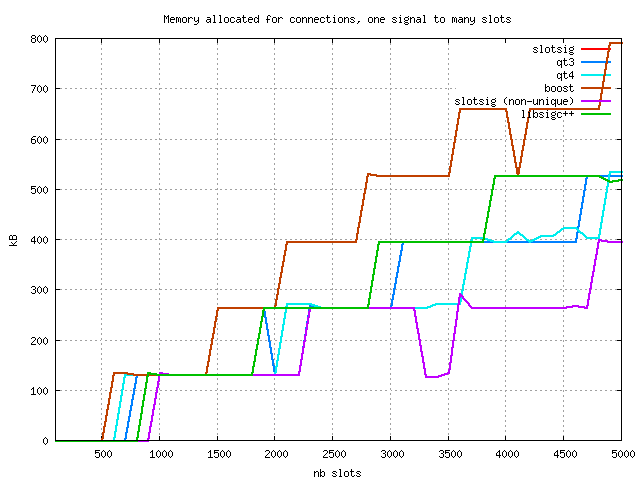 |
| many to one | 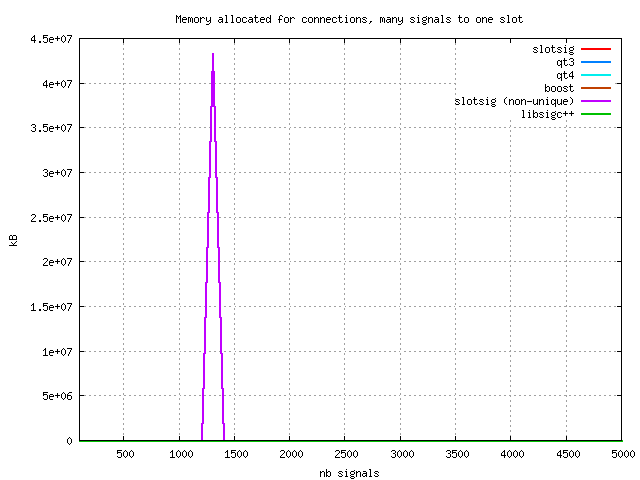 |
| random many to many | 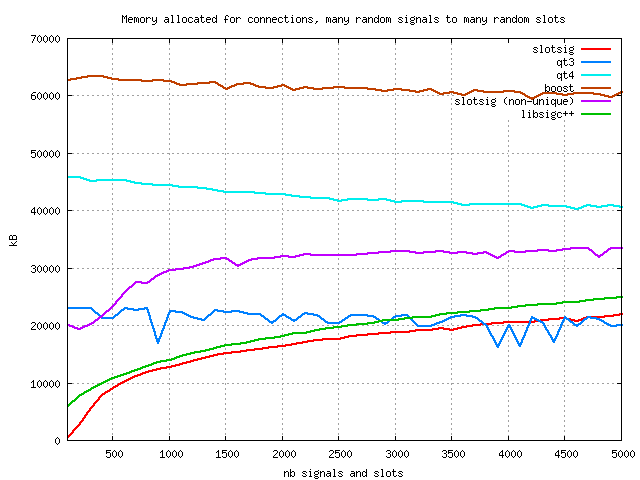 |
| Calling slots speed | |
| one to many | 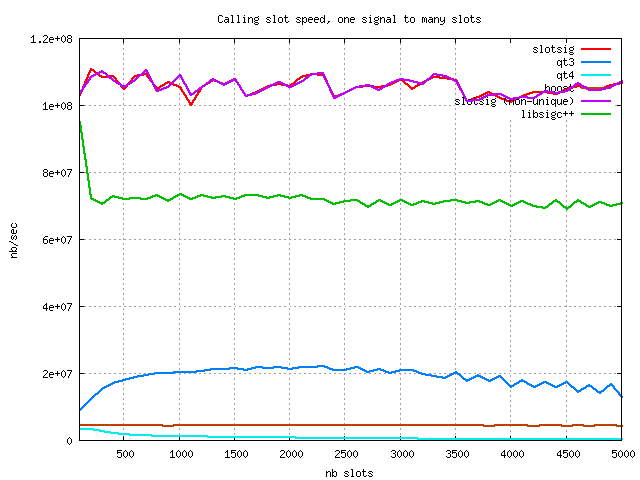 |
| many to one | 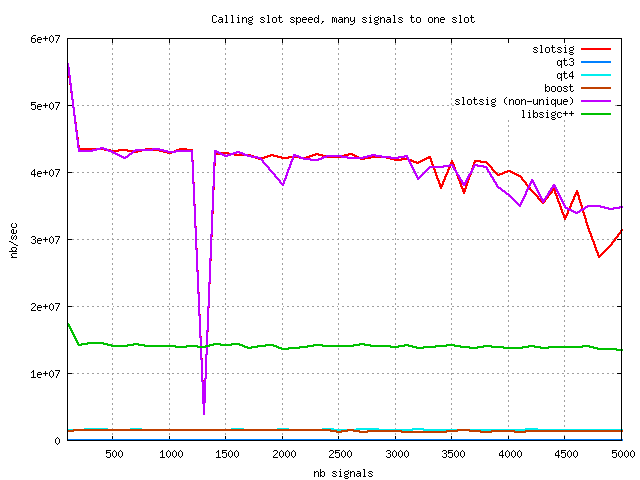 |
| random many to many | 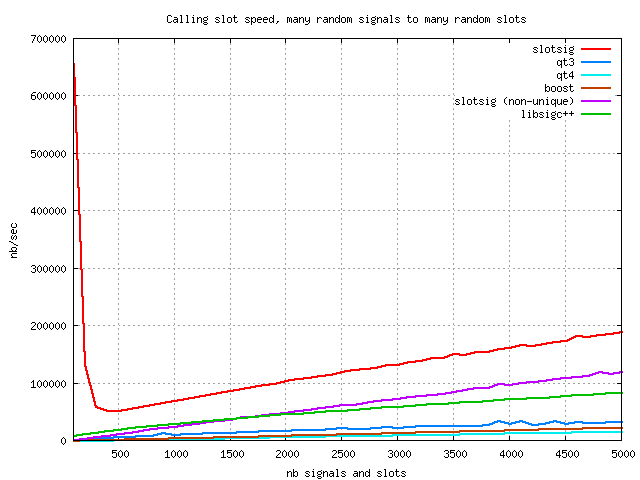 |
| Speed of disconnections | |
| one to many | 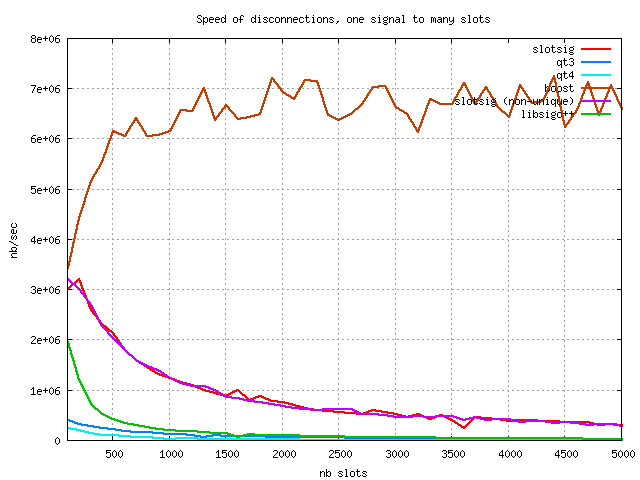 |
| many to one | 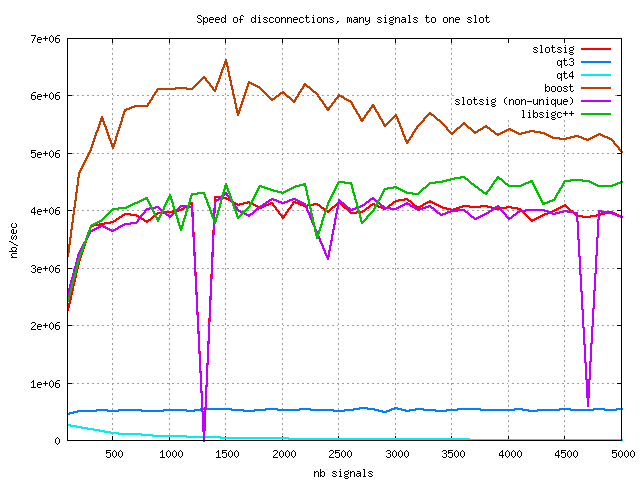 |
| random many to many | 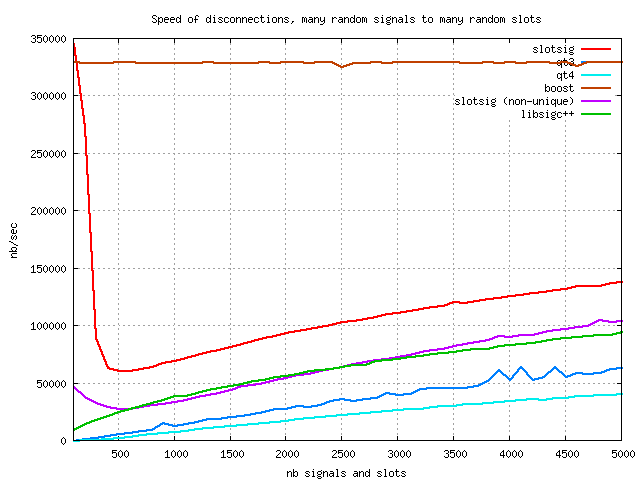 |
If you have some idea of other bench you would like to see, let me know.
Last update 2006-04-17